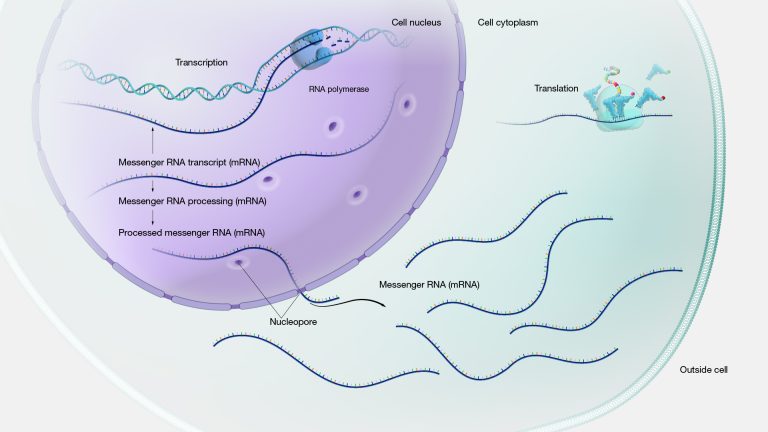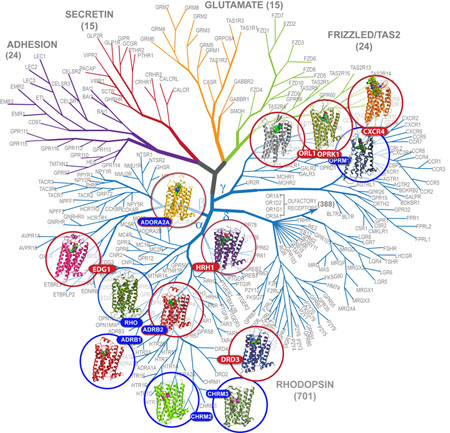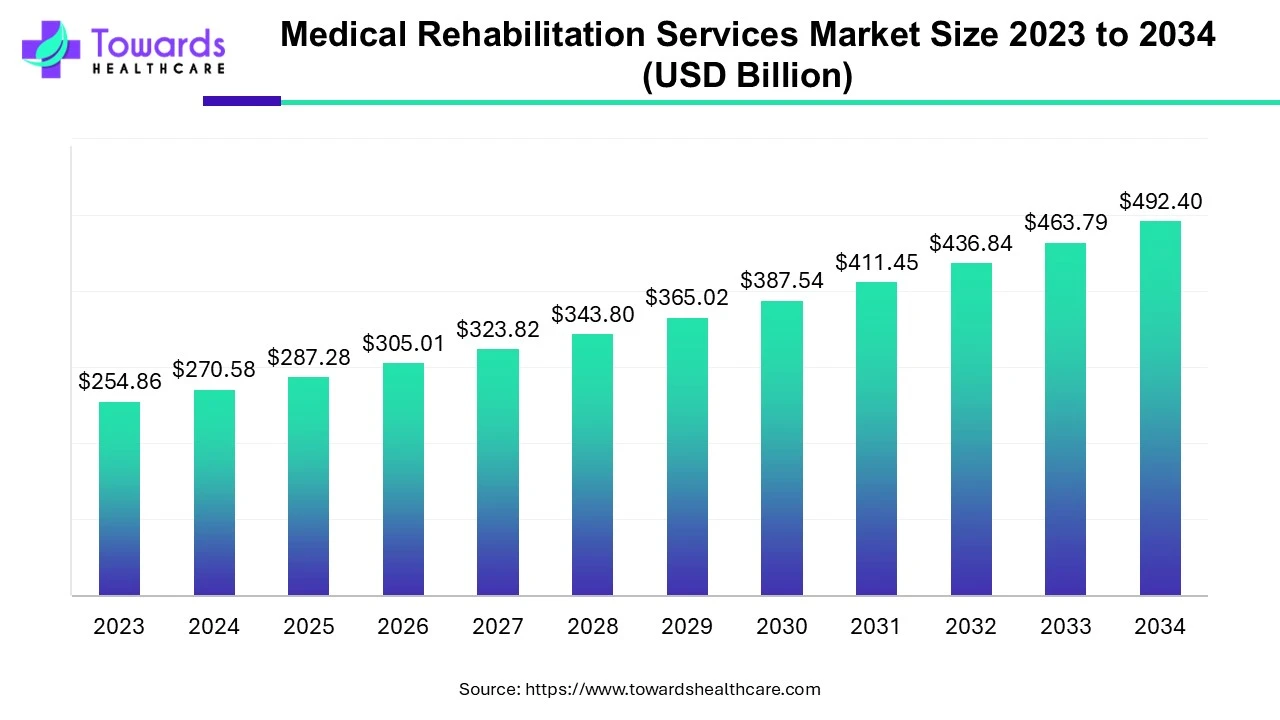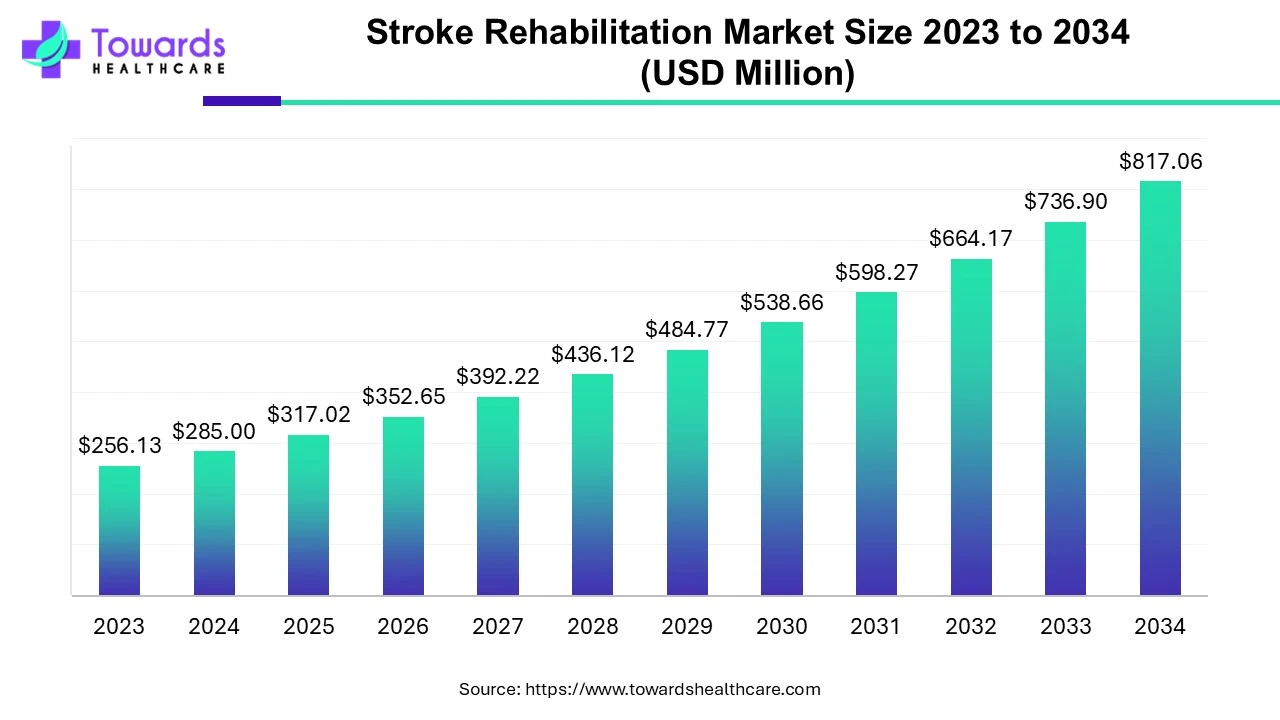DNA Sequencing Market Growth and Insights Projected Expansion from 2024 to 2034
The global DNA sequencing market was valued at $12.42 billion in 2023 and is expected to experience significant growth, reaching $107.63 billion by 2034. This growth is driven by a robust compound annual growth rate (CAGR) of 21.69% between 2024 and 2034. Key factors contributing to this expansion include rising demand for genomics research, advancements in sequencing technologies, and increased investments in the field.
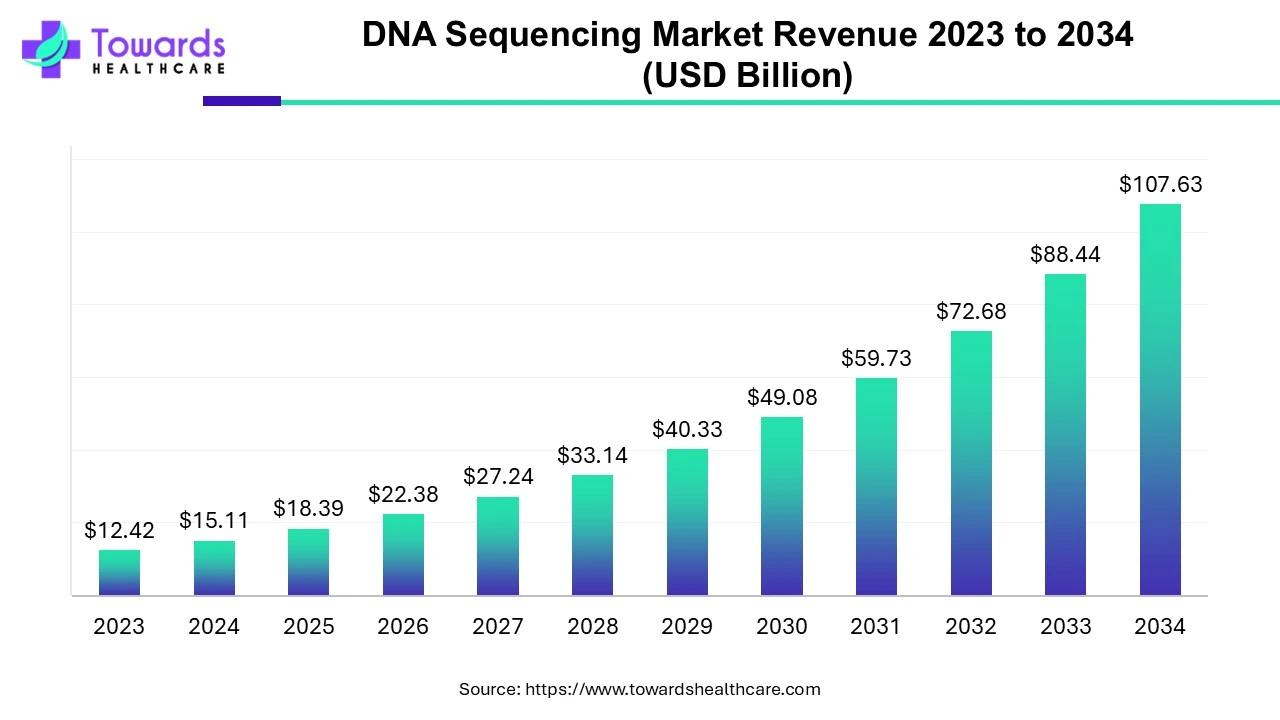
Download statistics of this report @ https://www.towardshealthcare.com/download-statistics/5336
DNA Sequencing Market Trends Key Developments and Insights
The DNA sequencing market is experiencing rapid growth, driven by several key trends:
- Technological Advancements: Continuous improvements in sequencing technologies, such as next-generation sequencing (NGS), are enhancing accuracy, speed, and affordability, making DNA sequencing more accessible.
- Increased Adoption in Healthcare: The application of DNA sequencing in personalized medicine, genetic testing, and diagnostics is expanding, enabling more targeted and effective treatments.
- Growing Research Investment: Governments, private institutions, and pharmaceutical companies are increasing their investments in genomics research, fueling demand for DNA sequencing technologies.
- Integration with AI and Big Data: The integration of artificial intelligence and big data analytics with DNA sequencing is improving data interpretation, accelerating discoveries, and advancing precision medicine.
- Cost Reductions: As sequencing technologies become more affordable, DNA sequencing is increasingly being used in clinical settings, further driving market growth.
- Expanding Applications: DNA sequencing is finding applications in areas like agriculture, forensics, and environmental science, broadening its market potential.
Regional Insights: Key Drivers of Growth in DNA Sequencing Markets
North America: Government Support Fuels Growth
North America was the leading region in the DNA sequencing market in 2023, driven by the presence of major industry players, increasing incidences of rare diseases and cancers, and advanced research and development facilities. The U.S. government plays a significant role in supporting DNA sequencing, with institutions like the National Human Genome Research Institute providing funding to research organizations. In August 2024, the U.S. FDA announced the use of whole genome sequencing to prevent foodborne illnesses globally. Additionally, Canada is investing $15 million over five years to create the Pan-Canadian Genome Library (PCGL), a national genomic data management system.
Asia-Pacific: Rapid Growth Through Investments and Collaboration
The Asia-Pacific region is expected to see the fastest growth in the DNA sequencing market. This expansion is driven by an aging population, demographic shifts, increasing investments, and favorable government policies. China’s Five-Year Plan (2021-2025) dedicates more than 10% of R&D investments to the biotech sector. India, a key player in the region, is seeing remarkable growth, with the Genome India Project completing the sequencing of 10,000 Indian genomes in March 2024. Over the past decade, India has become one of the top 12 bio-manufacturers globally, contributing to the region’s rising bio-economy.
Segmental Insights: Product, Technology and Application Trends
- Product Insights
Consumables held the largest share of the market in 2023. This category includes reagents, buffers, and purification solutions, which are essential for DNA sequencing. The demand for genomics research and the growing affordability of consumables are driving the growth of this segment.
The services segment is expected to experience the fastest growth, as sequencing services offer time savings and accuracy, with technical experts handling the experiments. - Technology Insights
Next-generation sequencing (NGS) dominated the market in 2023, thanks to its ultra-high throughput, scalability, speed, and broad applications. However, the third-generation sequencing segment is poised for the highest growth, due to its enhanced diagnostic accuracy and faster results compared to NGS. - Workflow Insights
The sequencing process, where nucleotides are read on a sequencer, was the leading workflow in 2023. The data analysis segment, which interprets the sequencing results using bioinformatics tools, is projected to grow rapidly, driven by innovations in software and user-friendly interfaces. - Application Insights
Oncology remained the dominant application of DNA sequencing in 2023, driven by the rising incidence of cancer and the increasing demand for early detection methods. DNA sequencing can even predict cancer risks in infants through genetic data. The consumer genomics segment is expected to grow the fastest, fueled by greater awareness about disease prevention, particularly for neonates, and the expanding application of genetic testing. - End-Use Insights
Academic research was the leading end-use segment in 2023, supported by increased funding from both government and private sectors, as well as frequent conferences and symposiums. The clinical research segment is expected to experience rapid expansion, benefiting from strong infrastructure, funding, and technical expertise.
Our Table of Content (TOC) covers key healthcare market segments, materials, technologies and trends—helping you navigate market shifts and make informed decisions: https://www.towardshealthcare.com/table-of-content/dna-sequencing-market-sizing
Access exclusive insight now @ https://www.towardshealthcare.com/price/5336
We’ve prepared a service to support you. Please feel free to contact us at sales@towardshealthcare.com
Web: https://www.towardshealthcare.com
Visit Dental Specifics: https://www.towardsdental.com
Get the latest insights on industry segmentation with our Annual Membership: Get a Subscription
For Latest Update Follow Us: https://www.linkedin.com/company/towards-healthcare
